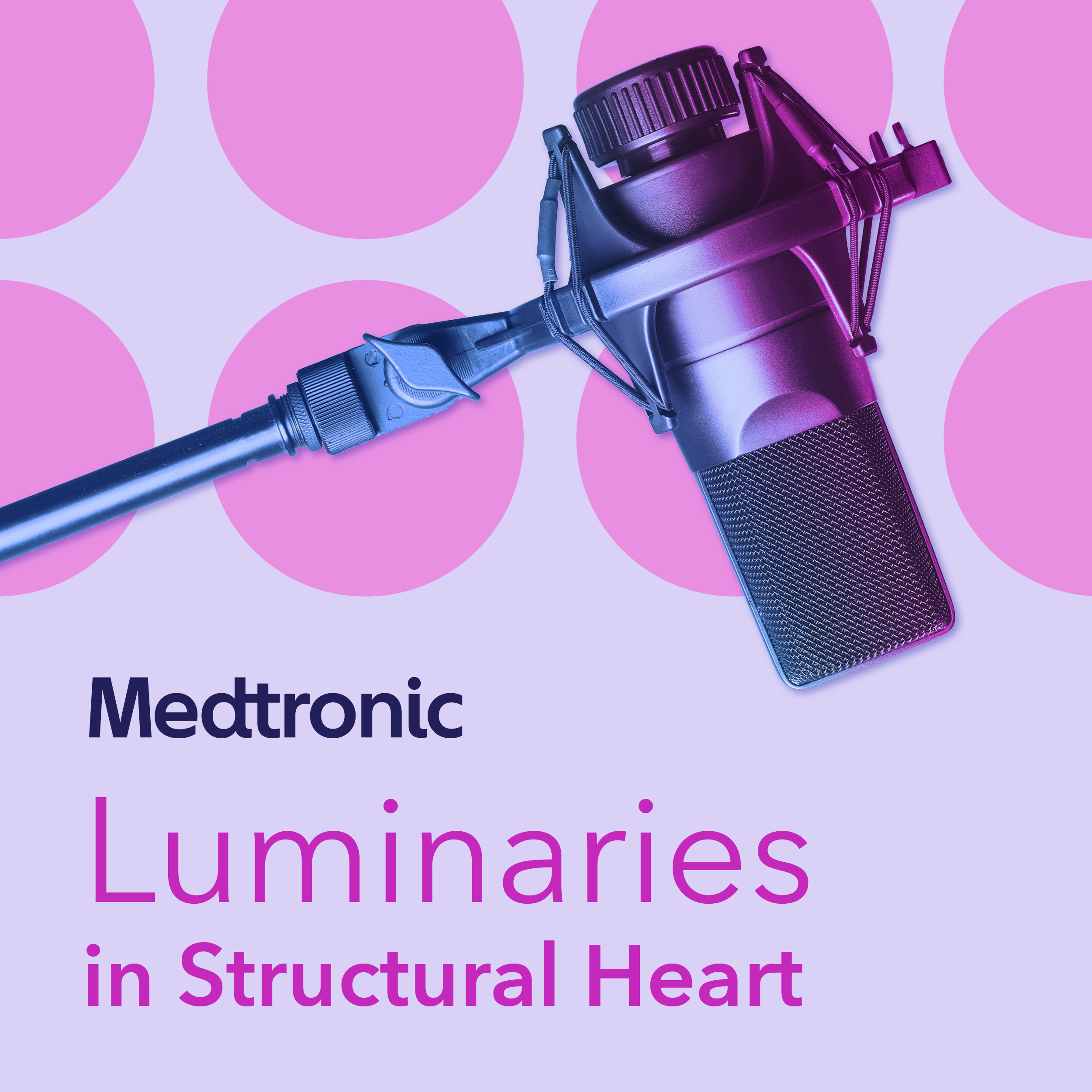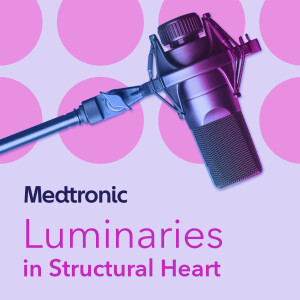
4.5K
Downloads
11
Episodes
The Luminaries in Structural Heart podcast is a program dedicated to getting to know various world personalities in cardiology. We will address issues of personal and academic history, as well as current hot topics of great relevance and keys to contemporary invasive cardiology. This podcast will be hosted by well-recognized cardiac surgeons or interventional cardiologists with extensive experience in structural heart interventions.
Episodes

Wednesday Jan 29, 2025
Women and aortic stenosis, evidence practice review of the SMART trial results.
Wednesday Jan 29, 2025
Wednesday Jan 29, 2025
Featured faculty:
Martha Gulati, MD MS FACC FAHA FASPC FESC
Director of Preventive Cardiology and Professor of Cardiology, Cedars Sinai Smidt Heart Institute
Associate Director, Barbra Streisand Women’s Heart Center
Associate Director, Preventive and Cardiac Rehabilitation Center
Anita Dann Friedman Endowed Chair in Women’s Cardiovascular Medicine & Research
Roxana Mehran, MD, FACC, FESC, FAHA, MSCAI
Director, Women's Heart and Vascular Center at Mount Sinai Fuster Heart Hospital
Director, The Center for Interventional Cardiovascular Research and Clinical Trials
Professor of Medicine (Cardiology) and Population Health Science and Policy, Icahn School of Medicine at Mount Sinai
Disclosures:
Faculty for this event are consultants for Medtronic and compensated for this event.
Dr. Gulati: I serve on advisory boards for Novartis, Esperion, New Amsterdam and Medtronic. I serve on a DSMB for Merck. All except Medtronic unrelated to our discussion
Dr. Mehran reports institutional research payments from: Abbott, Alleviant Medical, Beth Israel Deaconess Medical Center, Concept Medical, Cordis, Elixir Medical, Faraday Pharmaceuticals, Idorsia Pharmaceuticals, Janssen, MedAlliance, Mediasphere Medical, Medtronic, Novartis, Protembis GmbH, RM Global Bioaccess Fund Management, Sanofi US Services, Inc. ; Personal fees from: Elixir Medical, IQVIA, Medtronic, Medscape/WebMD Global, NovoNordisk ; Equity <1% in: Elixir Medical, Stel, ControlRad (spouse) ; No Fees from: SCAI (Women in Innovations Committee Member), Faculty Cardiovascular Research Foundation (CRF), Women as One (Founding Director) ; Honorarium: AMA - JAMA Cardiology (Associate Editor), ACC (BOT Member, SC Member CTR Program)
TAVR risks may include, but are not limited to, death, stroke, damage to the
arteries, bleeding, and need for permanent pacemaker.
†Evolut™ TAVR is indicated to treat patients who have been diagnosed with symptomatic severe aortic stenosis.
1. Tchétché D, Mehran R, Blackman DJ, et al. Transcatheter Aortic Valve Implantation by Valve Type in Women With Small Annuli: Results From the SMART Randomized Clinical Trial. JAMA Cardiol. Published online October 9, 2024.
The Medtronic CoreValve™ Evolut™ R, Evolut™ PRO+, and Evolut™ FX Systems are indicated for relief of aortic stenosis in patients with symptomatic heart disease due to severe native calcific aortic stenosis who are judged by a heart team, including a cardiac surgeon, to be appropriate for the transcatheter heart valve replacement therapy.
The Medtronic CoreValve Evolut R, Evolut PRO+, and Evolut FX Systems are indicated for use in patients with symptomatic heart disease due to failure (stenosed, insufficient, or combined) of a surgical bioprosthetic aortic valve who are judged by a heart team, including a cardiac surgeon, to be at high or greater risk for open surgical therapy (e.g., STS predicted risk of operative mortality score ≥ 8% or at a ≥ 15% risk of mortality at 30 days).

No comments yet. Be the first to say something!